Google Pixel 8 Pro vs Pixel 8: Reaping the harvest, Google style
We may earn a commission if you make a purchase from the links on this page.

Intro
Nearly two years after it kicked off, Google's softly rebooted Pixel lineup now finally feels on an equal standing with all of its main rivals. Technically, the new Pixel 8 Pro and Pixel 8 are your regular yearly smartphone refresh, but that's just what was needed to elevate the series to the higher level.
With super-bright displays, tons of AI goodies, and better performance, the Pixel 8 series could be the perfect entryway into the pure Android experience. Which is the Pixel phone to get this year, and are we certain that it's the Pixel 8 Pro by default? Is the Pixel 8 the bestseller in disguise to consider?
Let's find out.
Pixel 8 Pro vs Pixel 8 main differences:
| Pixel 8 | Pixel 8 Pro |
|---|---|
| 6.2-inch screen | 6.7-inch screen |
| 2,000 nits peak | 2,400 nits peak |
| 8 GB RAM, 256 GB max storage | 12 GB RAM, 1 TB max storage |
| 4,575 mAh battery | 5,050 mAh battery |
| 12 MP ultra wide with macro mode, no zoom camera | 48 MP ultra-wide with macro mode, 5x zoom camera |
| Available in Mint, Hazel, Obsidian, Rose | Available in Mint, Bay, Obsidian, Porcelain |
| Tensor G3 | Tensor G3 |
| - | New thermometer sensor |
Read more:
Design and Size
Family legacies
Will you be able to spot any major differences between the Pixel 8 Pro and the Pixel 8? Sure. Aside from the obvious size differences, the Pixel 8 Pro has one extra camera and a slightly wider rear camera cutout, while the lighter and more compact Pixel 8 is a bit more understated in this regard. Aesthetically, however, Google sticks to the tried-and-tested design language that has graced both the Pixel 6/Pixel 6 Pro and Pixel 7/Pixel 7 Pro series.
Size-wise, the Pixel 8 has shrunk in size and is now more compact than the Pixel 7, which surely is a welcome sight for our eyes, fatigued by larger and larger phones every day. With a 6.17-inch display, the Pixel 8 differs from the 6.32-inch Pixel 7 greatly.
At the same time, the Pixel 8 Pro has remained a 6.7-inch device. This big difference greatly helps for the diversification between the two phones, which wasn't necessarily been the case in previous years. Those craving for a smaller phone will get the Pixel 8, while those that need the most features and the largest display will surely want to opt for the Pixel 8 Pro.
Both phones have retained their IP68 water- and dust-resistance. On the colors front, we've got a bunch of new great new options, which are thankfully moving past the drab black and white palette that has shrouded the phone industry recently. We have Porcelain, Bay and Obsidian on the Pixel 8 Pro, while the Pixel 8 can be yours in Rose, Hazel and Obsidian. Cool!
Display and Biometrics differences
Actua vs Super Actua
The Pixel 8 Pro features a 6.7-inch screen that Google calls Super Actua, while the Pixel 8 comes with a smaller 6.2-inch Actua screen. Why the new naming scheme? Well, the displays on these two new phones are special, as they both have record-breaking maximum brightness levels for the Pixel range. As Google deservedly boasted on stage, the Pixel 8 can crank its brightness up to 2,000 nits, while the larger Pixel 8 Pro can scorch your eyes at up to 2,400 nits of peak brightness!
Both the Pixel 8 Pro and the Pixel 8 also support super-smooth 120Hz refresh rate, but the Pixel 8 Pro is better endowed in this regard. It's display is an LTPO one, so it can vary between 1 and 120Hz for the ultimate smoothest scrolling experience, whereas the Pixel 8 doesn't have an LTPO screen, so the user can only choose between 60Hz and 120Hz refresh rates.
There is an in-display fingerprint scanner embedded right into each phone's display for quick and easy unlocking. Surely, fingerprint unlock isn't the only way to unlock the new Pixels: Google has once again added face unlock on its phones, and it's picture-based as usual, but this time around, it's obviously more secure and can now be used to authenticate fintech and other sensitive apps.
Performance and Software
Google Tensor G3 to the rescue
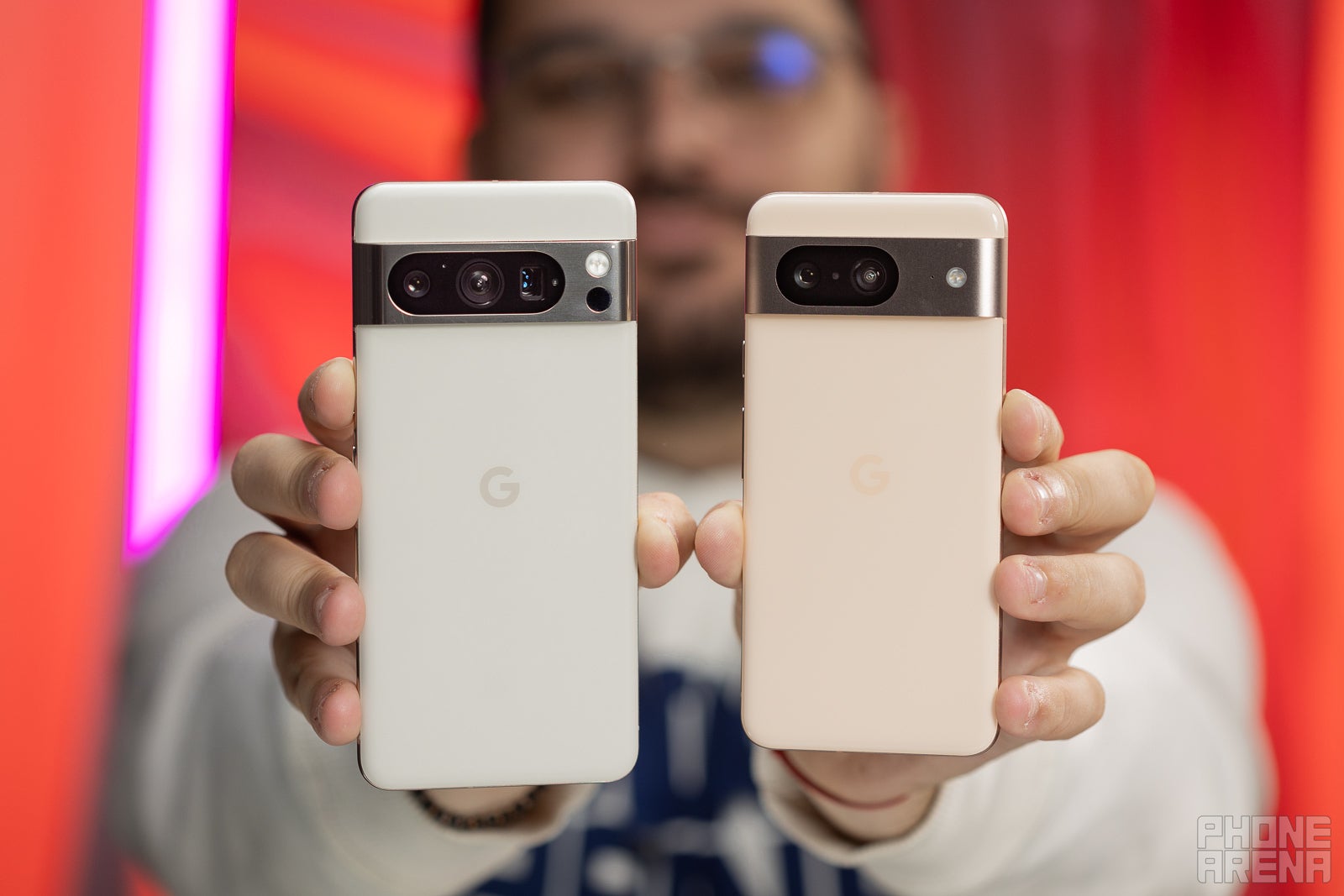
(Image Credit - PhoneArena)
The Pixel 8 and the Pixel 8 Pro boast the nona-core 64 bit-only Google Tensor G3 chipset on board. That's right, this one comes with nice cores on deck, unlike the octa-core Google Tensor G2. The Tensor G3 comes with the Cortex-X3 prime core running at 3.0GHz for extra-demanding tasks, while a quartet of mid Cortex-A715 cores running at up to 2.45GHz and quad Cortex-A510 cores take care of regular and non-intensive tasks.
Graphics is another area in which the Tensor G3 has improved in comparison with the Tensor G2, employing a 15% faster Mali-G715 GPU as well as a a custom new TPU core that takes care of AI and ML-related computations.
This still unofficial chipset will debut along with the phones and will be the third and improved version of Google's custom chipset endeavors. We expect that this silicon will still be tailored on artificial intelligence and machine learning, with raw performance taking the back seat.
As such, the Pixel 8 or the Pixel 8 Pro probably won't shine in comparison with the upcoming Snapdragon 8 Gen 3 and the Apple A17 Bionic chipsets. However, the Tensor G3 is sufficient for your everyday needs.
In terms of memory and storage, we have fast LPDDR5X RAM on the two devices. The Pixel 8 comes with 128 and 256GB of storage, while the Pixel 8 Pro will be up for grabs in 128, 256, 512GB, and 1TB versions.
Software, however, is an area in which both the Pixel 8 Pro and Pixel 8 truly shine. In a typical Google fashion, most of the exciting new features are software ones, of course fueled by Google's humbling AI and ML mettle.
And yet, the most exciting new feature is the projected 7-year software support for the two new flagships. Yes, 7 years, and this doesn't only apply to security updates, but to full-fledged Android releases as well. Yes, expect to see Android 21 on the Pixel 8 Pro by this decade's end!
Camera
Three is more than two
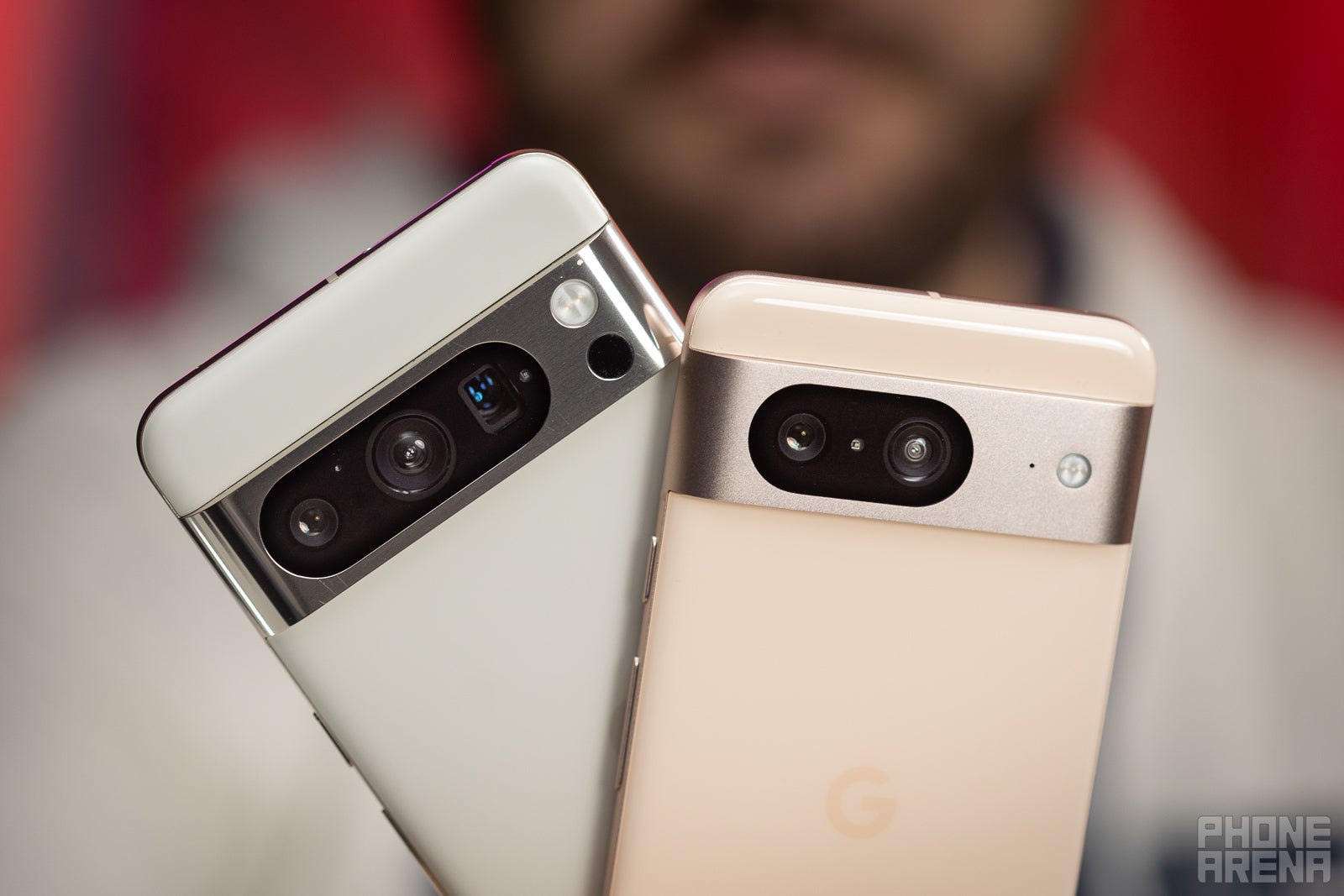
(Image Credit - PhoneArena)
Just like its predecessors, the Pixel 8 Pro comes with a triple camera setup, and all of its cameras have scored better light sensitivity. The main camera weighs in at 50MP and has an f/1.68 aperture, while the 48MP ultra-wide and the 48MP telephoto cameras also have much wider apertures.
Meanwhile, the Pixel 8 relies on a dual camera setup, with the main camera being the same 50MP f/1.68 as the one on the Pixel 8 Pro. It offers and offers 2x zoom, which is not optical but crops from the center of the sensors and should provide decent quality.
There's some serious difference in the ultra-wide cameras of the two devices as well. While the Pixel 8 employs a regular 12MP camera, the Pixel 8 Pro has a new 48MP ultra-wide camera with an improved sensor and wider aperture as well as improved macro capabilities.
Tons of cool software and AI-powered camera features are also present. Best Take, for example, will use AI to combines areas of similar photos into one fantastic picture where everyone looks their best. The Magic Editor and Magic Eraser have also gotten better, and so has the pro-grade photography controls available in the improved new camera app.
Google is also getting serious about video. In a move aimed at dethroning the iPhone from being the best video-recording machine this side of the Milky Way, Google has graced the Pixel 8 Pro with Night Sight Video that promises to deliver outstanding videos.
And here are our camera benchmarks for the Pixel 8 Pro and the Pixel 8, which should give you a decent understanding of what each phone is capable of.
Below you can check out some camera samples taken with both the Pixel 8 Pro and the Pixel 8.
Google Pixel 8 Pro camera samples
Google Pixel 8 camera samples
Audio Quality and Haptics
Both the Pixel 8 Pro and Pixel 8 deliver can superb sounds to your audiophiliac ears. neither phone will disappoint you when it comes to audio, though the Pixel 8 Pro delivers a tad richer sound.
In the past few years, Google put a lot of emphasis on the haptics with the Pixel series, so we are happy to report that the Pixel 8 Pro and the Pixel 8 provide strong and accurate haptic feedback during interface interactions.
Battery Life and Charging
Endurance galore
The Pixel 8 Pro comes with a 5,050mAh battery, while at the same time, the smaller Pixel 8 comes with a 4,575mAh battery. Battery life is mostly similar to each phone's predecessor, but our custom battery tests put the Pixel 8 Pro ever slightly ahead of its smaller sibling. With their displays manually set at 200 nits of brightness, both devices enjoy very respectable battery life, even during 3D gaming, and we are happy to report that the smaller Pixel 8 doesn't lag behind the larger phone too much, so battery life probably shouldn't be a decisive argument to get one over the other.
Charging-wise, the Pixel 8 and the Pixel 8 Pro charge at up to 30W. Fast wireless charging and Battery Share are also part of each phone's specs sheet. Each phone takes around an hour and a half to get fully charged, but you can get around 80% in roughly an hour or so.
We performed the wired charging test with the optimal charger for each phone — in this case, the Google official charger for the Pixel phones, which doesn't come in the box, but you can buy separately from the Google Store. The good thing about USB C is that 3rd party chargers should be able to "talk" to your Pixel phones and deliver the optimal charge, as long as the charger has at least 30 W output.
Specs Comparison
Eager to check out those Pixel 8 Pro vs Pixel 8 specs? We've summarized the main hardware specs in the table below.
| Google Pixel 8 Pro | Google Pixel 8 | |
|---|---|---|
| Size, weight | 162.6 x 76.5 x 8.8 mm, 213gr | 150.5 x 70.8 x 8.9 mm, 187gr |
| Screen | 6.7" OLED 1-120Hz 2,400 nits | 6.2" OLED 120Hz 1,600 nits |
| Processor | Tensor G3 | Tensor G3 |
| RAM, Storage | 128GB/256GB/512GB/1TB LPDDR5X | 128GB/256GB LPDDR5X |
| Cameras | 50MP main 48MP ultra 48MP telephoto 10.5MP front AF | 50MP main 12MP ultra 10.5MP front |
| Battery | 5,050mAh | 4,575mAh |
| Charging | USB-C 30W wired | USB-C 30W wired |
Summary
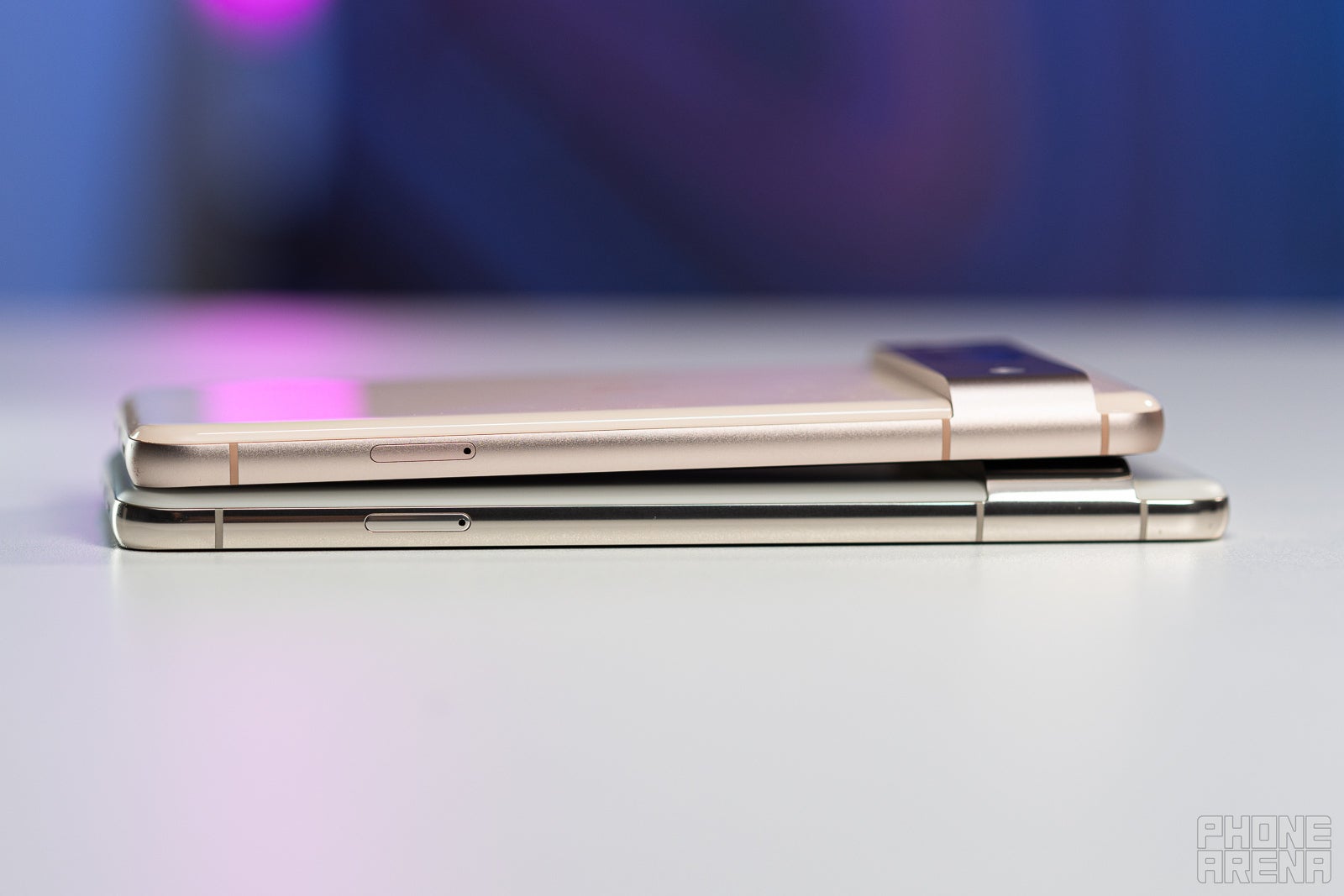
(Image Credit - PhoneArena)
The Pixel 8 Pro and the Pixel 8 are currently shaping up to be regular yearly updates that won't overhaul the Pixel flagship series, but will introduce some decent quality of life improvements to the lineup. Brighter displays, better cameras, improved performance, and lots of fun software AI-powered features are making the two new Pixels quite exciting.
Add the stupendous promise for seven years of software support, including major Android updates, surely makes the new Pixels two phones to watch out for!
Overall, Google is on the verge of making a pretty good job at diversifying its upcoming flagship phones by making the smaller Pixel more compact and the larger one better suited at 'pro' users. The $999 starting price positions the Pixel 8 Pro as a direct rival to the equally premium iPhone 15 Pro Max and Galaxy S23 Ultra.
At the same time, the Pixel 8 is a sensible compact phone starting at just $699, it's the perfect embodiment of an affordable mini flagship that generally doesn't differ that much from the proper flagship phone.
Follow us on Google News
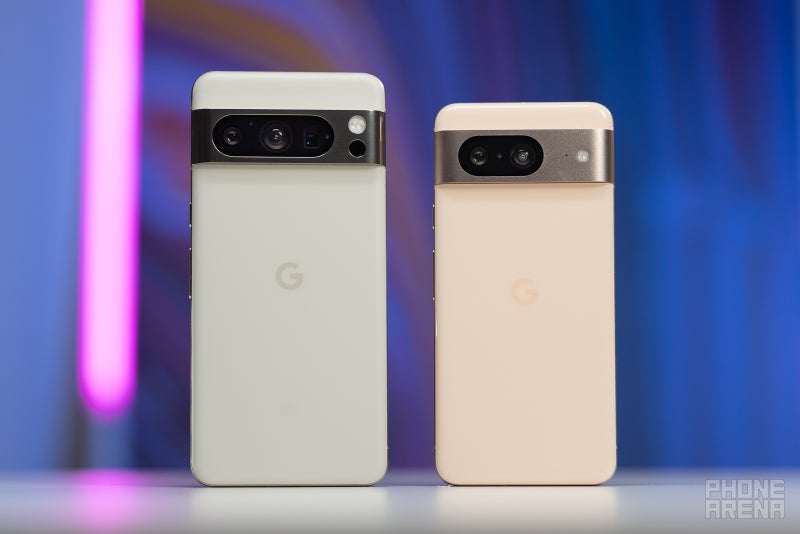
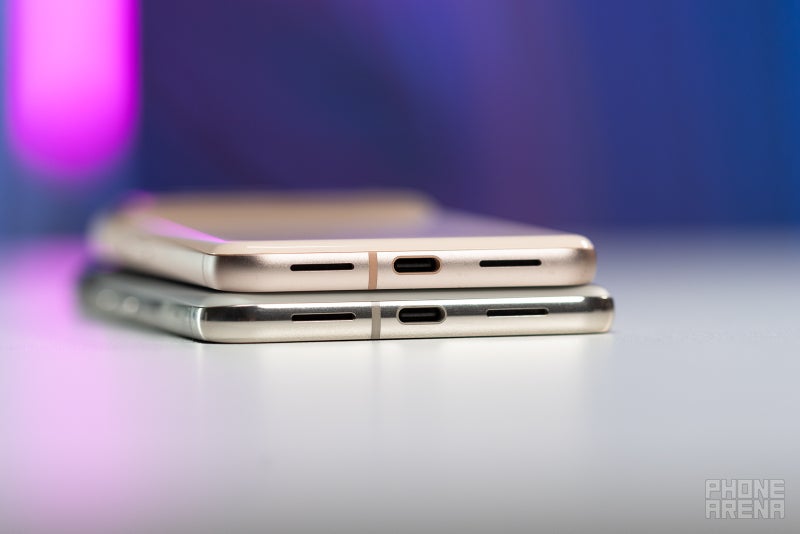
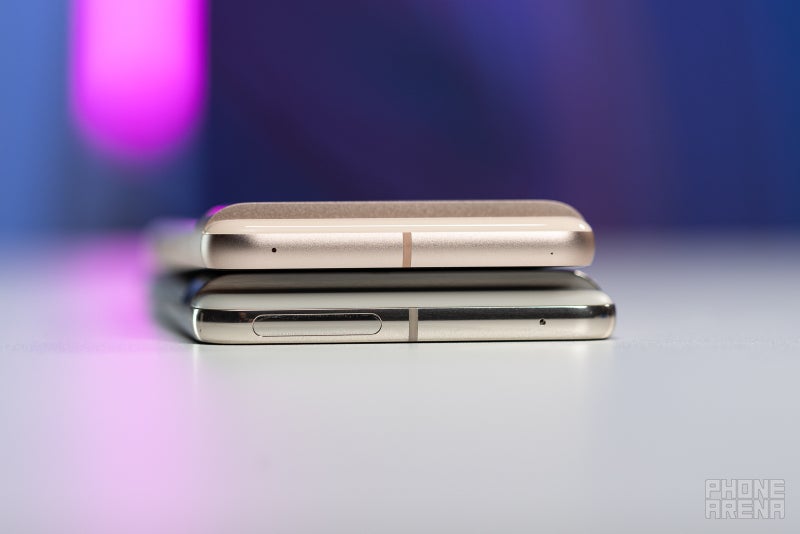
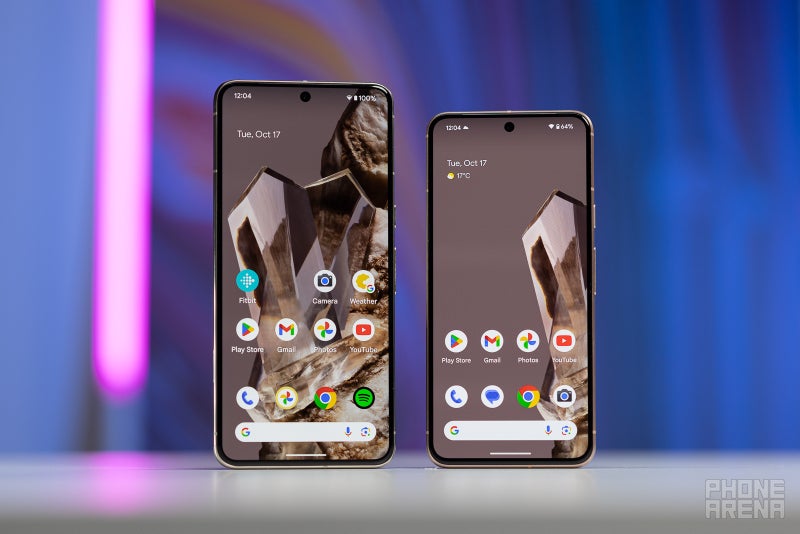
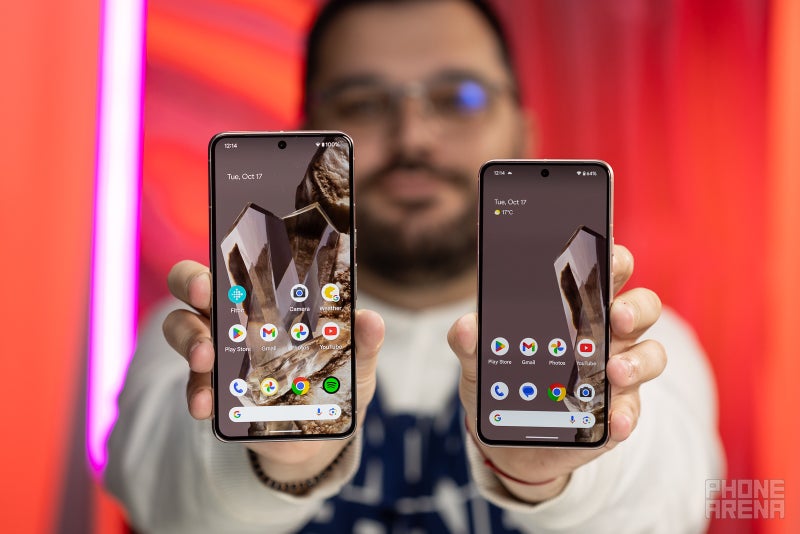
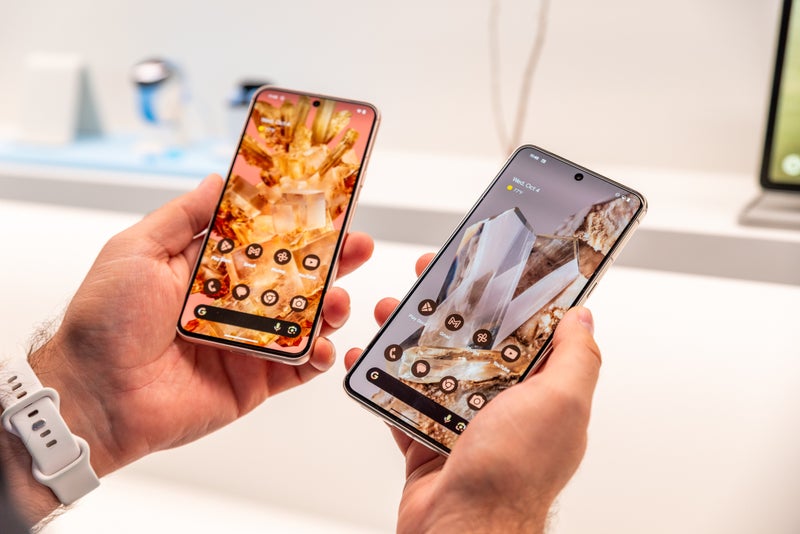
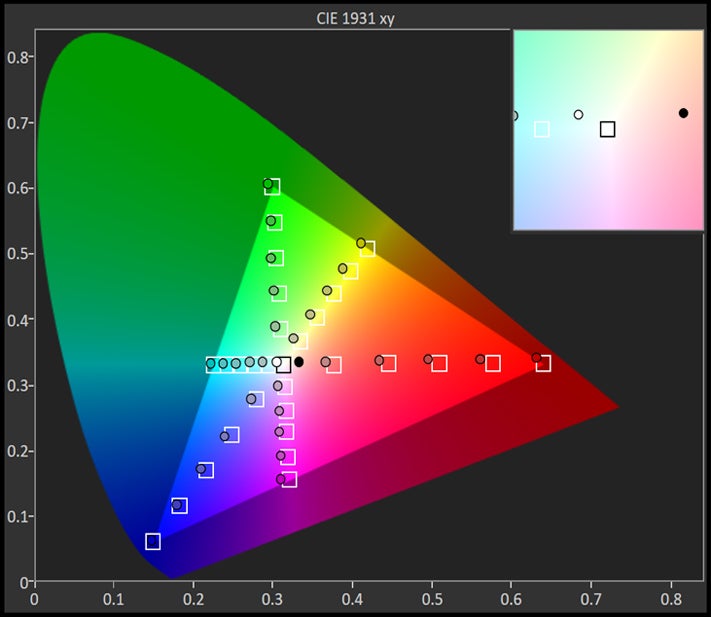
























Things that are NOT allowed:
To help keep our community safe and free from spam, we apply temporary limits to newly created accounts: